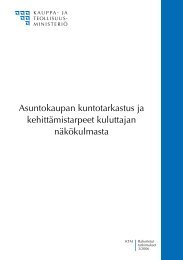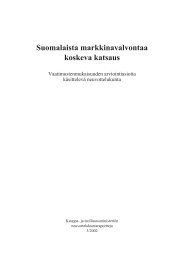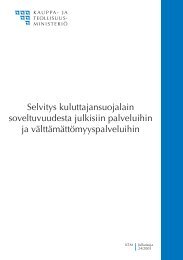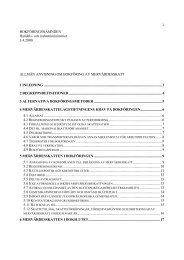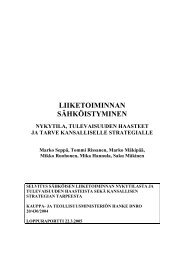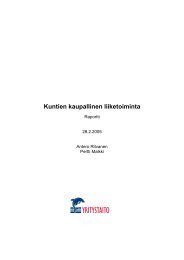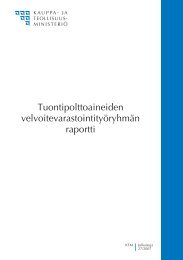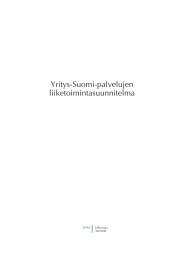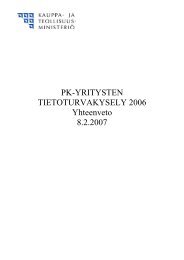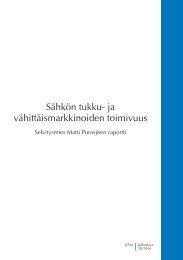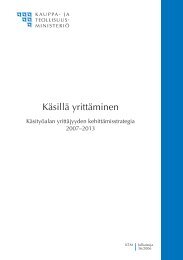Knowledge Intensive Services' Suppliers and Clients
Knowledge Intensive Services' Suppliers and Clients
Knowledge Intensive Services' Suppliers and Clients
Create successful ePaper yourself
Turn your PDF publications into a flip-book with our unique Google optimized e-Paper software.
35<br />
repertoire of communal resources (routines, artefacts, vocabulary, technique, etc.)<br />
that members have developed (Wegner, 1998). It thus involves self-organising<br />
groups of people, engaged in broadly the same practice, among who there is regular<br />
communication about the activities. <strong>Knowledge</strong> production is effectively a<br />
spill-over of these activities <strong>and</strong> communications, as the community develops<br />
underst<strong>and</strong>ings of processes <strong>and</strong> practices (often “know-how”). It does not<br />
necessary seek to codify <strong>and</strong> disseminate its knowledge into the wider world.<br />
Creplet et al (2001) have shown that such an approach can shed light on KIBS,<br />
basing their analysis on a study of consultancy firms.They differentiate between<br />
consultants – who bring relatively st<strong>and</strong>ardised solutions to the clients – <strong>and</strong><br />
experts – who h<strong>and</strong>le more complex or novel problems with original solutions. The<br />
consultant’s reputation is partly built around the reputation of the KIBS for whom<br />
he or she works. It is also underpinned by professional credentials <strong>and</strong>, of course,<br />
the practical demonstration of know-how within a community of practice. Experts<br />
will tend to find recognition through publications <strong>and</strong> more academic means of<br />
marking their territory <strong>and</strong> demonstrating their contributions to knowledge.<br />
Creplet et al go on to relate this to the functions performed by different types of<br />
KIBS, <strong>and</strong> to their internal organisation – some providing relatively st<strong>and</strong>ardised<br />
services <strong>and</strong> organised hierarchically, others involving much more interpersonal<br />
interaction <strong>and</strong> flexible organisation.The consultant, it is suggested, provides a<br />
vector for the development <strong>and</strong> transfer of knowledge as to best practice, <strong>and</strong> may<br />
thus enhance the daily operation of clients. The expert, in contrast, provides<br />
strategic vision, <strong>and</strong> may effect more long-term change.<br />
Employment <strong>and</strong> skills<br />
A further literature that might be reviewed here, were there more space <strong>and</strong> time<br />
available, would be that concerned with the development <strong>and</strong> mobility of skilled<br />
<strong>and</strong> professional labour (e.g. the work of Mark Tomlinson).<br />
2.4 Management studies<br />
Just as sociological studies ask different questions from those posed by economists,<br />
management studies tend to focus on their own sets of challenges. Performance s<br />
indeed a concern here, though it is usually performance of the individual unit that is<br />
of concern. Power relations <strong>and</strong> social structures are similarly of interest, but less as<br />
a subject of critical analysis than as the substance of instrumental action.



